Pro-Ustasha Croat singer splits Mostar
Thousands of Croats from Herzegovina were on their way to Mostar to see Marko Perković, aka Thompson, in concert.
Friday, 28.09.2007.
13:14

Thousands of Croats from Herzegovina were on their way to Mostar to see Marko Perkovic, aka Thompson, in concert. Just four months after he was forced to cancel a Sarajevo date amid protests and indignation, the controversial Croat musician last night held a huge concert in Mostar. Pro-Ustasha Croat singer splits Mostar The singer, whose work many claim harbors extremely sinister fascist overtones, has irreconcilably divided the city on the Neretva and opened up some unhealed wounds of war. In the city, already deeply split along ethnic lines, Thompson's arrival marked some kind of return to the war, at least in a symbolic sense. For everyone else, last night’s concert was a parade of fascism, such as cannot be seen anywhere else in Europe. Fascist insignia, songs glorifying torture and war crimes, hundreds of youths in Ustasha uniforms are all part and parcel of any Thompson concert wherever he goes. Mostar Serbs, Jews and other citizens launched a protest against last night’s event – a “musical extravaganza” in the words of the organizers – which they see as nothing but an excuse for fascist revelry. A respected member of the town’s Jewish community, Zoran Mandelbaum, feels that to hold such a gathering is, "to say the least, politically inappropriate." Moreover, no-one in Mostar can deny the fact that such an event glorifies fascist ideology. Even though it is rare that the town's religious leaders express their views, a representative of the city’s Muslim community, Mufti Seid Smajkic summed up the feelings of the local Bosniaks. However, in his opinion, the problem with this concert is "not just the promotion of fascist ideas," but also the already long-established habit of audiences at Thompson concerts, exhilarated by battle-cries from the concert, "to go on a spree of chaos and destruction." As views on Thompson's life’s work have been known for a long time, it is truly frightening to hear the opinions of certain Mostar Croat associations who, as they say, do not understand what Bosniaks and Jews have against Thompson singing songs about killing Serbs. Listening to Perkovic, one would say that he revels in the controversy. He even goes so far as to say that he believes the Bosniaks have been hypocritical towards him, as his well-known song “Cavoglave” - which includes the line “Listen you gang of Chetniks, Our hand will reach you in Serbia itself” - at the very beginning of the war in Bosnia-Herzegovina, was effectively "adapted and remodeled for the Bosnian public, and was so popular that everyone knew it and sang it, from schoolchildren to old-age pensioners." It seems, however, that the memories of bloody battles of today's Thompson fans with residents from the other side of the Neretva are still all too fresh, as calls from the organizers for the representatives of the local Jewish and Islamic communities to attend the concert, together with Bosnia-Herzegovina Army veterans’ associations, were viewed as pure provocation. In an atmosphere of deep mistrust, every event that takes place in the town contains its own particular political symbolism. Regardless of ethnicity, it is clear that last night’s concert represented more than just an everyday musical event for all the citizens of Mostar, reports B92’s correspondent in Sarajevo.
Pro-Ustasha Croat singer splits Mostar
The singer, whose work many claim harbors extremely sinister fascist overtones, has irreconcilably divided the city on the Neretva and opened up some unhealed wounds of war.In the city, already deeply split along ethnic lines, Thompson's arrival marked some kind of return to the war, at least in a symbolic sense.
For everyone else, last night’s concert was a parade of fascism, such as cannot be seen anywhere else in Europe. Fascist insignia, songs glorifying torture and war crimes, hundreds of youths in Ustasha uniforms are all part and parcel of any Thompson concert wherever he goes.
Mostar Serbs, Jews and other citizens launched a protest against last night’s event – a “musical extravaganza” in the words of the organizers – which they see as nothing but an excuse for fascist revelry.
A respected member of the town’s Jewish community, Zoran Mandelbaum, feels that to hold such a gathering is, "to say the least, politically inappropriate." Moreover, no-one in Mostar can deny the fact that such an event glorifies fascist ideology.
Even though it is rare that the town's religious leaders express their views, a representative of the city’s Muslim community, Mufti Seid Smajkić summed up the feelings of the local Bosniaks.
However, in his opinion, the problem with this concert is "not just the promotion of fascist ideas," but also the already long-established habit of audiences at Thompson concerts, exhilarated by battle-cries from the concert, "to go on a spree of chaos and destruction."
As views on Thompson's life’s work have been known for a long time, it is truly frightening to hear the opinions of certain Mostar Croat associations who, as they say, do not understand what Bosniaks and Jews have against Thompson singing songs about killing Serbs.
Listening to Perković, one would say that he revels in the controversy. He even goes so far as to say that he believes the Bosniaks have been hypocritical towards him, as his well-known song “Čavoglave” - which includes the line “Listen you gang of Chetniks, Our hand will reach you in Serbia itself” - at the very beginning of the war in Bosnia-Herzegovina, was effectively "adapted and remodeled for the Bosnian public, and was so popular that everyone knew it and sang it, from schoolchildren to old-age pensioners."
It seems, however, that the memories of bloody battles of today's Thompson fans with residents from the other side of the Neretva are still all too fresh, as calls from the organizers for the representatives of the local Jewish and Islamic communities to attend the concert, together with Bosnia-Herzegovina Army veterans’ associations, were viewed as pure provocation.
In an atmosphere of deep mistrust, every event that takes place in the town contains its own particular political symbolism. Regardless of ethnicity, it is clear that last night’s concert represented more than just an everyday musical event for all the citizens of Mostar, reports B92’s correspondent in Sarajevo.










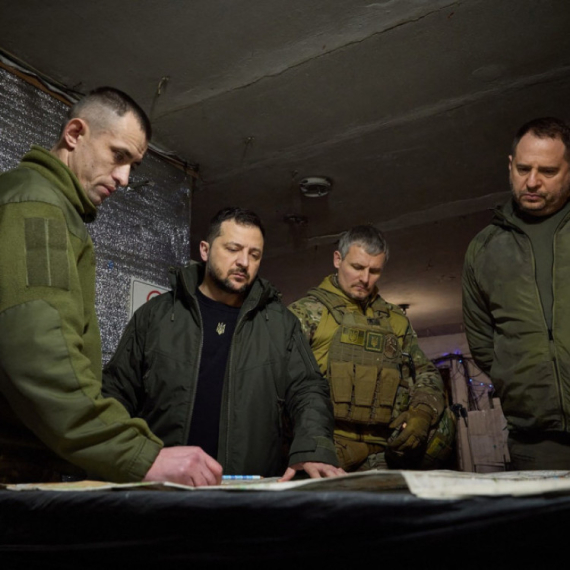

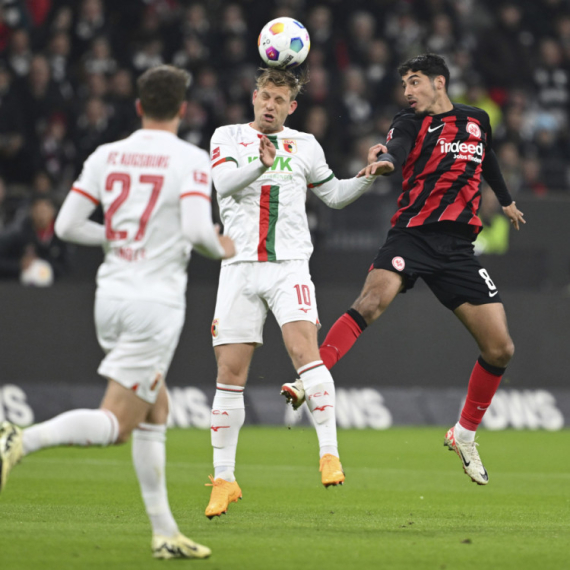

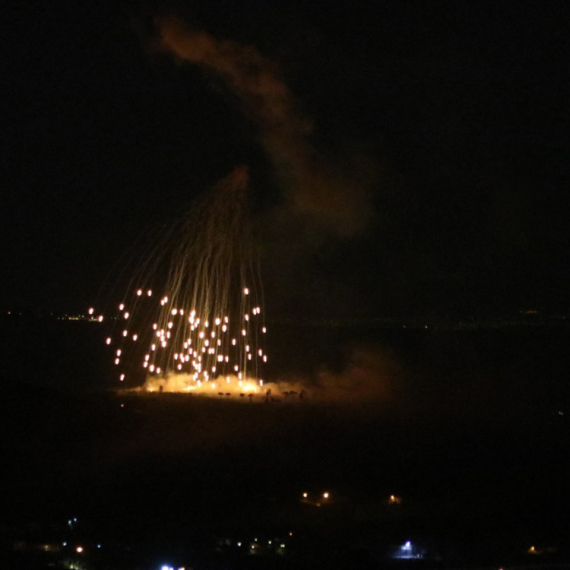
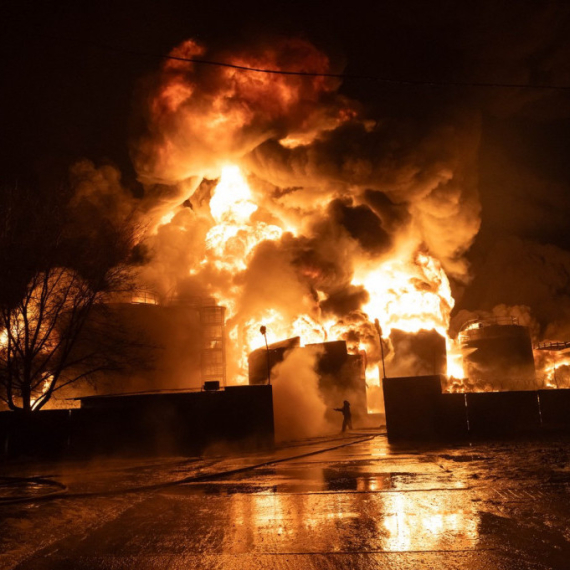
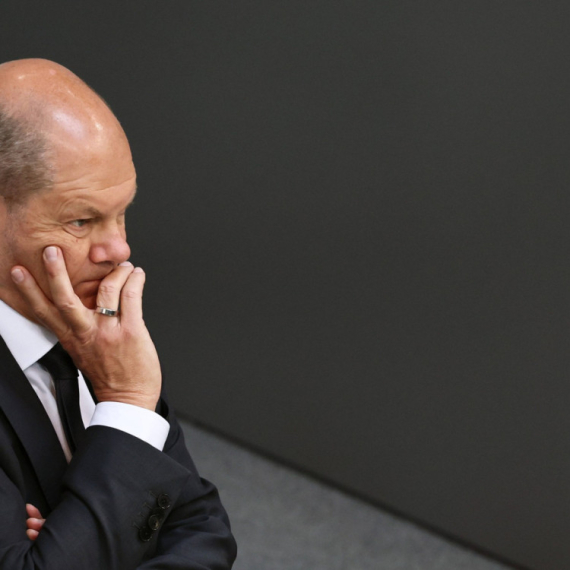
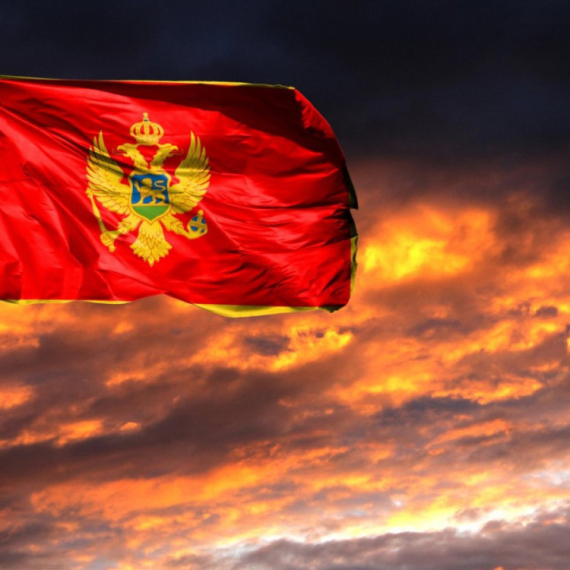































Komentari 6
Pogledaj komentare